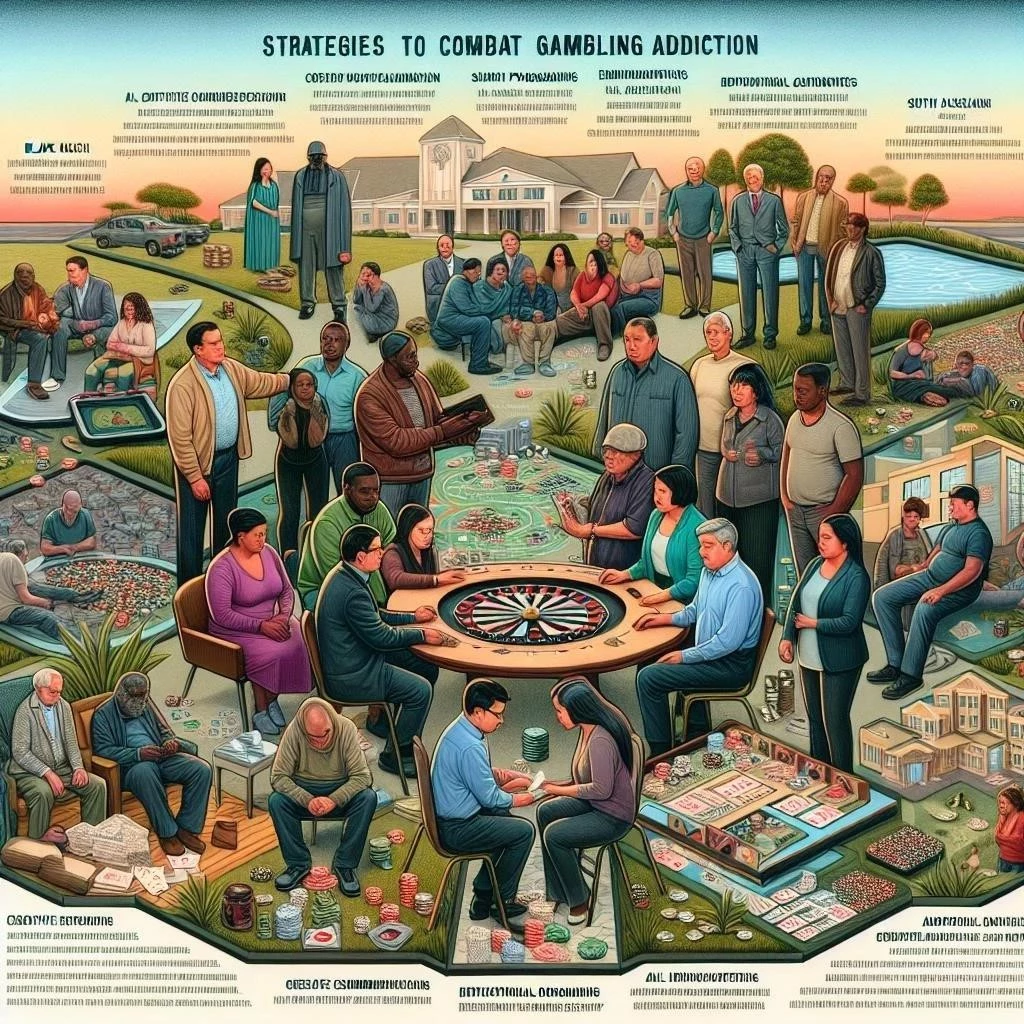Explore the harmful effects of gambling on society, including addiction, financial struggles, and mental health issues. Learn about efforts to address these issues.
Strategies to Combat Gambling Harm and Protect Communities
Wellcome Offer:
200% up to $2,000
+ 100 Free Spins
The winnings from your free spins will be credited as bonus funds. Exclusively available for new players with fair wagering requirements.
Wellcome Offer:
250% Bonus up to $5,000
+ 100 Free Spins
Claim your bonus and spin your way to big wins! Minimum deposit of $20 required. Wagering requirements apply. Bonus valid for 30 days.
Get up to:
100% up to $1,000
+ 300 Free Spins
You need to deposit at least $25 to be eligible for this bonus. The maximum amount of money you can withdraw from this bonus is limited to $20,000 or 10-times.
Welcome Package:
500% up to $5,000
+ 250% on your 2nd and 3rd deposits
This welcome package rewards new players across their first three deposits. A minimum deposit of $25 applies, with a wagering requirement of 60x before withdrawals.
Wellcome Offer:
250% up to $1,500
+ 100 free spins
Whether you prefer generous deposit bonuses or a bundle of free spins, Cafe Casino’s welcome offer has everything you need to enhance your gaming adventure.
Wellcome Offer:
500% bonus up to $7,500
+ 150 free spins
If you're after big deposit bonuses or a load of free spins, Ducky Luck Casino’s welcome package sets the stage for an exciting gaming adventure.
Welcome Offer:
200% up to $2,000
+ 100 Free Spins
This welcome package combines a deposit match with free spins, giving new players a powerful way to kick off their VoltageBet journey.
Wellcome Offer:
200% up to $1,000
+ 30 free spins
Lovers of slot games and those looking to boost their deposit will find Slots LV Casino’s welcome offer the perfect way to jumpstart their gaming journey.
Wellcome Offer:
200% up to $500
+ Free Spins
Terms typically include standard wagering requirements and a limited validity period. Offers vary by deposit method and player eligibility.
Wellcome Offer:
250% up to $1,500
+ 50 Free Spins
All winnings from free spins are credited as bonus funds, with fair wagering requirements. Exclusive to new players.
It is evident that gambling, in its various forms, is causing significant harm within communities across the globe. The rise of online and mobile gambling platforms has made access easier than ever before, leading to an increase in gambling-related issues such as addiction, financial problems, and mental health issues.
Efforts to combat the harm caused by gambling have often been criticized for focusing primarily on individuals with severe gambling problems, while neglecting the broader impact on communities. It is crucial to address this issue holistically and implement strategies that can help tip the odds back in the community’s favor.
Understanding the Harm
Research has shown that gambling harm is not limited to individuals with a diagnosed gambling disorder. It impacts families, friends, and the wider community. The negative consequences of gambling can be far-reaching and include financial strain, emotional distress, and social problems.
Prevention and Education
One of the key strategies to combat gambling harm is through prevention and education. By raising awareness about the risks associated with gambling and promoting responsible gambling practices, communities can empower individuals to make informed choices and seek help when needed.
Education programs should focus on highlighting the real odds of winning in different gambling activities, debunking common misconceptions about gambling, and providing information on where to seek help for gambling-related problems.

Regulation and Support Services
Regulation plays a crucial role in reducing the harm caused by gambling. Governments and regulatory bodies should implement policies that promote responsible gambling, such as age restrictions, advertising regulations, and support services for those affected by gambling addiction.
Community support services, such as helplines, counseling services, and support groups, are essential in providing assistance to individuals struggling with gambling issues. By offering a supportive environment and access to resources, communities can help mitigate the negative impact of gambling harm.
Collaboration and Advocacy
Addressing gambling harm requires a collaborative effort from various stakeholders, including government agencies, community organizations, healthcare providers, and the gambling industry itself. By working together, these stakeholders can develop comprehensive strategies to prevent gambling harm and support those affected by it.
Advocacy plays a crucial role in raising awareness about the impact of gambling harm and pushing for policy changes that prioritize the well-being of individuals and communities; By advocating for evidence-based interventions and greater support for those affected by gambling harm, communities can create a safer and more responsible gambling environment.
Conclusion
In conclusion, tackling the harm caused by gambling requires a multifaceted approach that involves prevention, education, regulation, support services, collaboration, and advocacy. By working together and implementing effective strategies, communities can tip the odds back in their favor and create a safer and healthier environment for all individuals.

























